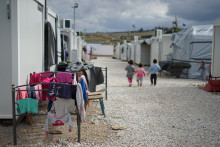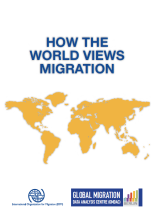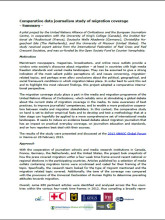Publication date: 25 October 2019
Working on a research project entitled 'Public opinion, mobilizations and policies concerning asylum seekers and refugees in anti-immigrant times' (Europe and Belgium), funded by the Belgian Federal Science Policy Office (Belspo) as part of its BRAIN-be research, a team of researchers from ULB, ULiège and KU Leuven have studied people's attitudes, discourses and mobilisation towards refugees in six European countries (Belgium, Germany, Sweden, Italy, Greece and Hungary) from 2017 to 2019.
Read more
Main theme: Asylum
Publication Type: Report
Keywords: public opinion, mobilisations, attitude towards migration
Publication date: 15 April 2019
A new report published by the Friedrich Ebert Stiftung shows how attitudes across Europe have changed before and after the 2015 migration ‘crisis’ and tries to explain what has driven those changes. Using data from the European Social Survey, the report’s authors find that, overall, perceptions of migration have remained both neutral and stable before and after the ‘crisis’. But there are a few countries that have become significantly more positive about migrants, as well as a few that have become significantly more negative.
Read more
Publication date: 26 October 2015
This report by the International Organization for Migration draws on data from the Gallup World Poll to provide an insight into public attitudes towards immigration worldwide.
Read more
Main theme: Data & Statistics, Migration
Publication Type: Report
Keywords: attitude towards migration, IOM
Publication date: 27 March 2013
The migration coverage study plays a part in the media and migration programme of the United Nations Alliance of Civilisations, which notably aims at stimulating a global debate about the current state of migration coverage in the media.
Read more
Main theme: Migration
Publication Type: Study
Keywords: attitude towards migration, media coverage, public perception
Publication date:
The SCI conference debate aims at identifying fears involved in migration, both those of migrants and those of inhabitants in countries of destination. The aim is also to have a critical look at discourses on this topic.




